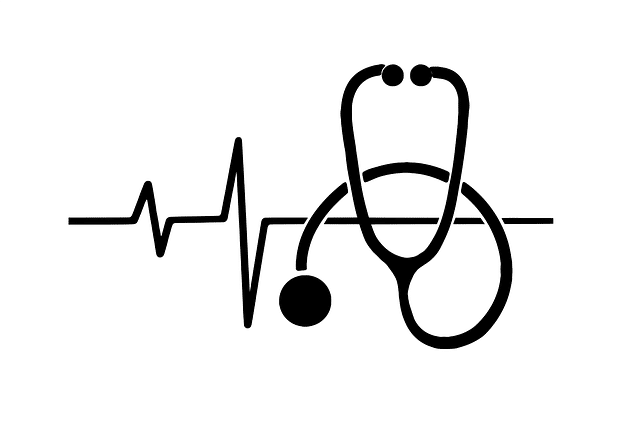Ever wondered how hospitals keep track of their countless medical devices, ensuring they operate at peak efficiency? Enter CMMS, or Computerized Maintenance Management Systems. These powerful tools aren’t just for scheduling repairs; they play a crucial role in monitoring healthcare equipment performance.
CMMS systems act like a digital brain for hospital operations, meticulously tracking each device’s maintenance history, performance metrics, and usage patterns. Imagine it as a guardian angel for medical equipment, constantly watching over to ensure everything runs smoothly.
One of the key benefits of CMMS in healthcare is preventive maintenance. By scheduling regular checks and calibrations based on usage data, hospitals can prevent breakdowns before they happen, minimizing disruptions in patient care. It’s like giving equipment a regular health check-up to catch issues early.
Moreover, CMMS systems provide detailed insights through robust reporting features. Hospital administrators can analyze data trends to make informed decisions about equipment upgrades, replacements, or adjustments in usage protocols. It’s akin to having a crystal ball that predicts equipment needs and performance trends.
Another advantage is compliance with regulatory standards. Healthcare facilities must adhere to stringent regulations regarding equipment maintenance and safety. CMMS helps by automating compliance documentation and ensuring that all devices meet regulatory requirements without fail.
In essence, CMMS isn’t just a tool; it’s a game-changer in healthcare equipment management. From ensuring operational efficiency to maintaining regulatory compliance, these systems are indispensable for modern hospitals striving to deliver top-notch patient care.
Transforming Healthcare Efficiency: The Role of CMMS in Equipment Performance Tracking
Imagine a hospital where every piece of equipment operates seamlessly, from MRI machines to patient monitors, ensuring they are always ready for immediate use. CMMS software facilitates this by scheduling regular maintenance tasks, such as inspections and calibrations, proactively addressing potential issues before they disrupt operations. This proactive approach not only minimizes equipment downtime but also extends their lifespan, reducing overall operational costs.
Moreover, CMMS systems centralize equipment data into a unified platform, providing healthcare staff with instant access to critical information. Whether it’s tracking maintenance history, monitoring performance metrics, or managing inventory levels of spare parts, CMMS ensures that healthcare providers can make informed decisions swiftly. This streamlined access to data enhances workflow efficiency, allowing medical professionals to focus more on patient care rather than equipment management.
In the realm of healthcare, where every second counts, CMMS acts as a silent guardian, continuously monitoring equipment health in real-time. It alerts staff to potential malfunctions, preventing critical failures that could jeopardize patient safety. By preemptively identifying issues, CMMS empowers healthcare facilities to maintain a high standard of care, ensuring equipment reliability and patient satisfaction.
The integration of CMMS into healthcare settings revolutionizes efficiency by optimizing equipment performance and reliability. Through proactive maintenance scheduling, centralized data management, and real-time monitoring capabilities, CMMS empowers healthcare providers to deliver superior patient care while maintaining operational excellence.
Optimizing Patient Care: How CMMS Systems Revolutionize Equipment Monitoring in Hospitals
Imagine a hospital where every medical device, from MRI machines to ventilators, operates seamlessly without downtime. CMMS systems make this possible by automating maintenance schedules, tracking equipment usage, and alerting staff to potential issues before they escalate. This proactive approach not only saves time but also enhances patient safety by minimizing equipment failures.
By centralizing equipment data, CMMS systems provide real-time insights into the health of hospital assets. Staff can monitor performance metrics, such as usage patterns and maintenance histories, enabling them to make data-driven decisions that optimize resource allocation and extend equipment lifespan.
In the fast-paced environment of healthcare, where every second counts, CMMS systems act as silent guardians. They ensure that critical equipment is always ready for use, reducing delays in patient care and improving overall operational efficiency. Hospitals benefit from reduced downtime, lower maintenance costs, and increased staff productivity, allowing healthcare professionals to focus more on patient care rather than equipment management.
Furthermore, CMMS systems adapt to the evolving needs of hospitals, integrating with other healthcare IT systems to streamline workflows. This interconnectedness fosters a holistic approach to hospital management, where data flows seamlessly across departments, supporting informed decision-making at every level.
From Data to Diagnosis: CMMS and Its Impact on Healthcare Equipment Maintenance

Imagine a hospital where every piece of equipment, from MRI machines to patient beds, functions flawlessly round the clock. CMMS makes this possible by harnessing data to predict maintenance needs before equipment failure occurs. This proactive approach not only minimizes downtime but also reduces the risk of critical failures during patient care.

In essence, CMMS acts as the vigilant guardian of healthcare equipment. It meticulously tracks each device’s maintenance history, schedules routine inspections, and alerts technicians of impending issues. By analyzing historical data and real-time performance metrics, CMMS empowers healthcare facilities to make informed decisions swiftly.
Moreover, the impact of CMMS extends beyond operational efficiency. It enhances compliance with regulatory standards, such as those set by bodies like the Joint Commission. This adherence ensures that healthcare providers maintain high standards of care, promoting patient trust and safety.
In a fast-paced environment where seconds count, CMMS ensures that healthcare professionals can focus on what truly matters: delivering optimal patient outcomes. It’s like having a proactive partner that anticipates needs, troubleshoots challenges, and keeps everything running smoothly behind the scenes.
CMMS isn’t just a technological upgrade; it’s a game-changer in healthcare equipment maintenance. By leveraging data-driven insights, it empowers healthcare facilities to enhance reliability, reduce costs, and most importantly, improve patient care.
Ensuring Operational Excellence: CMMS Solutions for Monitoring Healthcare Equipment
CMMS solutions are designed to streamline maintenance operations by integrating asset management, preventive maintenance scheduling, and work order management into a single platform. This centralized approach not only enhances efficiency but also reduces downtime and operational costs. Imagine having a tool that proactively alerts you to potential equipment failures before they disrupt critical services. That’s the power of predictive maintenance offered by CMMS systems.
Moreover, these systems facilitate compliance with regulatory standards and accreditation requirements, providing a robust framework for documenting maintenance activities and ensuring equipment safety. Healthcare providers can track equipment usage patterns, monitor performance metrics, and optimize inventory management—all from one intuitive interface.
But what sets CMMS solutions apart in healthcare is their ability to adapt to the unique needs of medical equipment. Whether it’s MRI machines, ventilators, or surgical instruments, each asset can be meticulously tracked throughout its lifecycle. By capturing real-time data and generating insightful reports, CMMS empowers healthcare administrators to make informed decisions that drive operational excellence.
In essence, CMMS solutions are not just tools; they are partners in enhancing healthcare delivery. They empower maintenance teams to operate proactively rather than reactively, minimizing disruptions and maximizing uptime. Picture a hospital where equipment runs smoothly, staff can focus on patient care, and resources are optimized—CMMS makes this vision a reality.
As technology continues to evolve, CMMS solutions evolve with it, incorporating advanced analytics, IoT integrations, and AI-driven insights to further refine maintenance strategies. The future of healthcare equipment management lies in proactive, data-driven approaches, ensuring that every piece of equipment contributes to the overall goal of improving patient outcomes.
Smart Healthcare Management: Utilizing CMMS for Real-Time Equipment Performance Insights
In today’s fast-paced healthcare environment, the need for efficient equipment management is more crucial than ever. Healthcare facilities rely heavily on their equipment to deliver timely and effective care to patients. This is where Computerized Maintenance Management Systems (CMMS) play a pivotal role.
CMMS enables healthcare providers to monitor and manage equipment performance in real-time. By integrating data from various medical devices and equipment, CMMS provides invaluable insights into maintenance schedules, performance trends, and potential issues. This proactive approach helps hospitals and clinics avoid costly downtime and ensures that critical equipment remains operational when needed most.
Imagine a scenario where a life-saving device in an emergency room suddenly malfunctions. With CMMS, hospital staff can receive immediate alerts regarding equipment failures or anomalies. This capability allows technicians to swiftly diagnose the problem and initiate repairs, minimizing disruption to patient care.
Moreover, CMMS facilitates predictive maintenance practices. By analyzing historical data and equipment usage patterns, healthcare administrators can predict when maintenance is due before equipment failure occurs. This predictive capability not only extends the lifespan of expensive medical equipment but also reduces overall maintenance costs.
In essence, CMMS transforms healthcare management by providing actionable insights into equipment performance. It empowers healthcare providers to make informed decisions that enhance patient outcomes and operational efficiency. By leveraging real-time data analytics, hospitals can optimize resource allocation, streamline workflows, and ultimately, deliver superior patient care.
As technology continues to advance, the role of CMMS in healthcare will only grow more significant. It serves as a cornerstone of smart healthcare management, aligning clinical excellence with operational excellence. With CMMS, healthcare facilities can navigate challenges effectively, ensuring that their equipment operates at peak performance levels, day in and day out.
Frequently Asked Questions
Why is tracking equipment performance crucial in healthcare settings?
Tracking equipment performance in healthcare settings is crucial to ensure optimal functionality and reliability of medical devices. It helps in maintaining patient safety, improving treatment outcomes, and minimizing downtime due to equipment failures.
What are the key features of CMMS that aid in monitoring equipment performance?
Learn about the essential features of CMMS that help in monitoring equipment performance efficiently.
How does CMMS software improve efficiency and reliability of healthcare equipment?
Learn how CMMS software enhances efficiency and reliability of healthcare equipment by streamlining maintenance schedules, tracking asset performance, and ensuring timely repairs, ultimately minimizing downtime and optimizing patient care.
What is a CMMS and how does it monitor healthcare equipment performance?
Learn about CMMS (Computerized Maintenance Management System) and its role in monitoring healthcare equipment performance. Discover how CMMS automates maintenance schedules, tracks equipment status, and enhances operational efficiency in healthcare settings.
How can CMMS software optimize preventive maintenance for healthcare equipment?
Learn how CMMS software streamlines preventive maintenance for healthcare equipment, enhancing efficiency and reliability through scheduled inspections, automated alerts, and comprehensive data management.